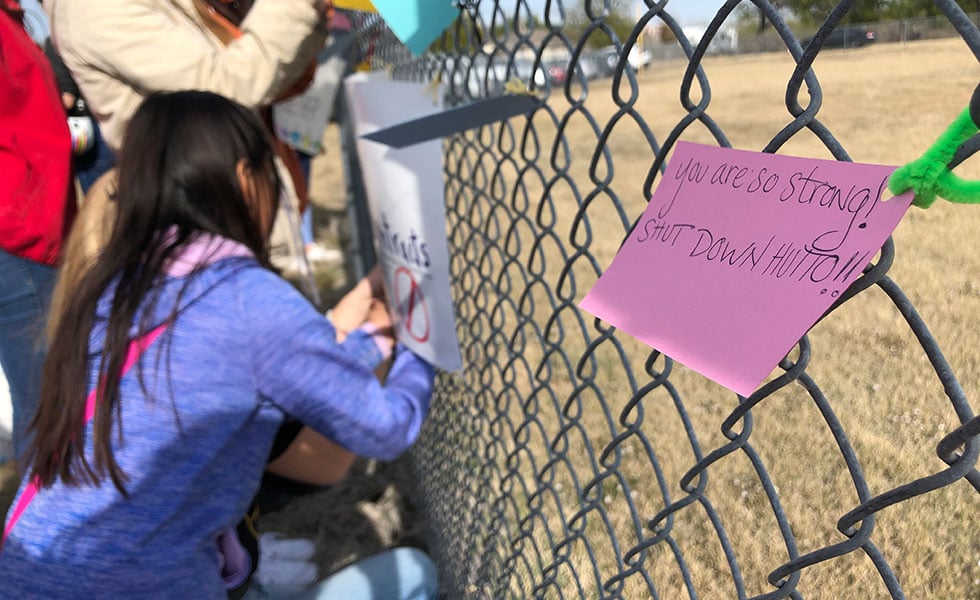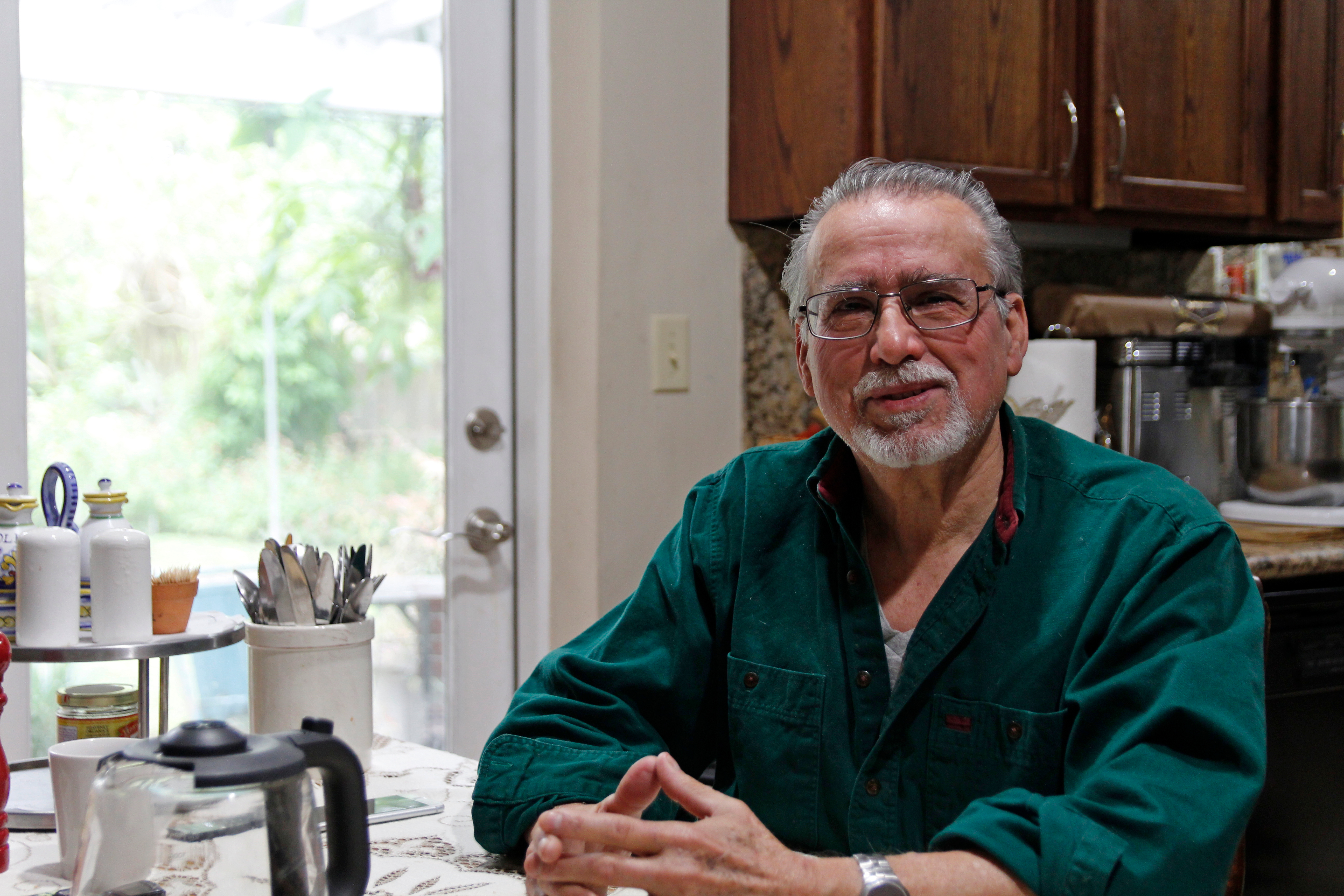
Following a Protest, ICE Moves Asylum-Seekers For the Second Time in Two Weeks
ICE moved 47 women to Laredo following a protest for better medical care. Last week, more than 100 detainees were sent to Louisiana, where courts are harsher.
More than 100 asylum-seekers were transferred last week from the T. Don Hutto Residential Center in Taylor, Texas, to Louisiana, where judges deny asylum at much higher rates. Advocates view the move as retaliation for a protest late last month over poor health conditions at the Texas facility; that action, they believe, also resulted in U.S. Immigration and Customs Enforcement (ICE) moving 47 different women to a Laredo detention center.
ICE confirmed in a statement to the Observer that “approximately” 120 detainees, all women, were sent to detention facilities in Louisiana last Tuesday. ICE said that transfers are “undertaken as needed for a variety of reasons.” “There is nothing unusual about the transfer of individuals in custody from one location to another,” the statement said.
Bethany Carson, an immigration researcher and organizer for the advocacy nonprofit Grassroots Leadership, sees it differently. Carson said that the women—who she believes are Cameroonian—will now face tougher courts in Louisiana. The success rate for asylum claims by Cameroonians is around 80 percent nationwide. In the last fiscal year, more than 500 people from Cameroon, which faces ongoing political violence, received asylum. But according to data analyzed by the Transactional Records Access Clearinghouse (TRAC) at Syracuse University, judges in New Orleans deny asylum to nearly 85 percent of all people who apply.
Carson also believes that the transfer will impact the women’s access to legal counsel. Legal aid providers will have to coordinate from afar or fly to Louisiana to continue work on the cases. And some women might have to start from scratch and find new representation. “Having to fight their cases in detention without legal help is a recipe to lose extremely valid cases,” Carson said.
Before the latest transfers, U.S. Representative Lloyd Doggett sent a letter to ICE asking that the women sent to Laredo be considered for humanitarian parole and pushing for clarity on why the women were transferred in the first place.“The situation gives the impression of governmental retaliation against these women for raising legitimate concerns regarding the denial of their basic human rights and dignity,” he wrote.
Following the additional transfers last week, Doggett told the Observer that his call for answers has been largely ignored. “Instead, I am now hearing that even more women were transferred,” Doggett said.
On Saturday, Grassroots Leadership held a rally in Pearsall, where they continued to call for better medical treatment for the Cameroonian women in detention. “Some of our sisters are sick and not being well-treated,” a volunteer read from a letter written by the women still inside. “Others are running mad due to trauma and stress. One person is in a wheelchair and needs surgery.”
According to the letter, 200 of the estimated 300 African women held there at the time were Cameroonian. The women said they were being denied parole, forced to sign documents, mocked by medical staff, and not given the right medications. Some had been detained for up to six months.
“These numbers sound like every single woman from Cameroon has been transferred,” Carson said. “It is absurd for these Cameroonians who are fleeing horrific circumstances.”
Read more from the Observer:
-
Following a Protest, ICE Transfers Dozens of Asylum Seekers to an Isolated Laredo Facility: Transferring detainees can negatively impact their already tenuous access to counsel.
-
The Gentrification of Texas: As the cost of housing skyrockets, Texans are getting pushed out and left behind. The stakes couldn’t be higher.
-
In Southeast Lubbock Neighborhood, Residents are Fed Up With a Feedlot: Kathy Stewart has complained for years about the fecal dust invading Yellowhouse Canyon. But so far, her concerns have mostly been ignored.


